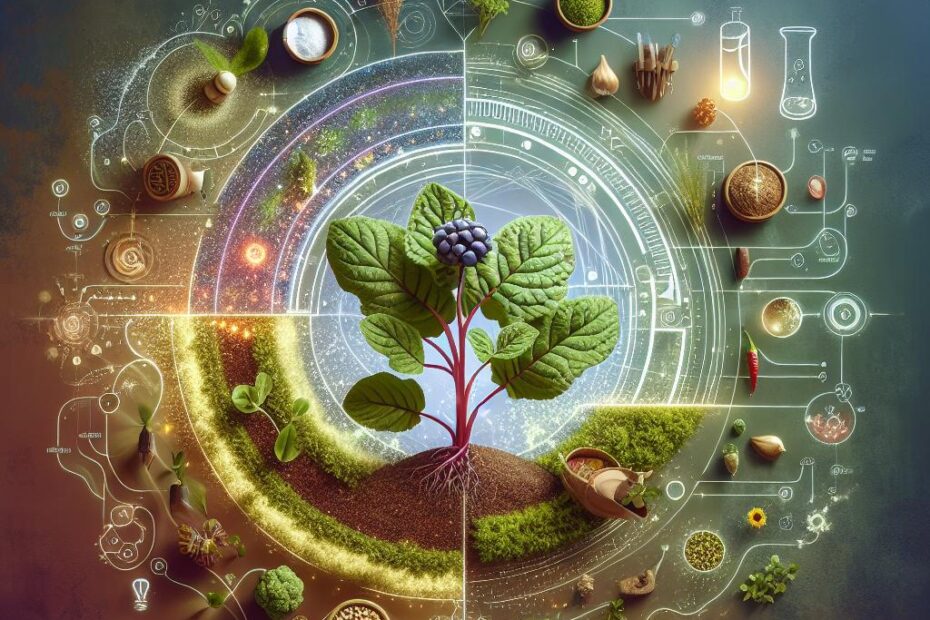What Veggies Like Acidic Soil: A Comprehensive Guide
When it comes to gardening, one of the most important factors to consider is the soil pH level. Different plants have varying preferences when it comes to soil acidity or alkalinity. In this article, we will focus on vegetables that thrive in acidic soil conditions, which typically have a pH level below 7.0.
Acidic soil can provide a favorable environment for certain vegetables to grow and thrive. It is essential to understand which veggies prefer acidic soil so that you can adjust your gardening practices accordingly. Let’s dive into the world of acidic-loving veggies and explore their benefits, practical tips, and more.
Vegetables that Prefer Acidic Soil
Here are some of the veggies that thrive in acidic soil conditions:
-
Tomatoes: Tomatoes are a popular vegetable that prefers slightly acidic soil with a pH level between 6.0 and 6.8. Acidic soil helps prevent blossom end rot, a common tomato plant disease.
-
Potatoes: Potatoes are another vegetable that does well in acidic soil. A pH level between 5.0 and 6.0 is ideal for growing healthy potato plants.
-
Blueberries: Blueberries are known for thriving in acidic soil. A pH level between 4.0 and 5.0 is best for blueberry plants to produce sweet and juicy berries.
-
Radishes: Radishes prefer slightly acidic soil with a pH level between 5.8 and 6.8. Acidic soil helps radishes grow quickly and develop a crisp texture.
-
Peppers: Peppers, such as bell peppers and chili peppers, also prefer slightly acidic soil. A pH level between 6.0 and 6.8 is ideal for growing robust pepper plants.
These are just a few examples of veggies that prefer acidic soil. By understanding the soil preferences of different vegetables, you can create an optimal growing environment for your plants.
Benefits of Growing Veggies in Acidic Soil
There are several benefits to growing vegetables in acidic soil:
-
Optimal Nutrient Absorption: Acidic soil helps make essential nutrients, such as nitrogen, phosphorus, and potassium, more available to plants, promoting healthy growth and development.
-
Disease Prevention: Certain plant diseases, such as clubroot in brassicas, are less likely to occur in acidic soil, reducing the risk of crop loss.
-
Improved Flavor and Texture: Vegetables grown in their preferred soil conditions tend to have better flavor, texture, and overall quality.
-
Increased Productivity: Providing vegetables with the ideal soil environment can result in higher yields and healthier plants.
Practical Tips for Growing Veggies in Acidic Soil
Here are some practical tips for successfully growing veggies in acidic soil:
-
Test Your Soil: Before planting, it’s essential to test your soil pH level using a soil testing kit. This will help you determine if your soil is acidic and if any amendments are needed.
-
Add Organic Matter: Incorporating organic matter, such as compost or manure, can help improve soil structure and fertility, making it easier for plants to thrive in acidic conditions.
-
Mulch Regularly: Mulching your vegetable garden can help maintain soil acidity levels, retain moisture, and suppress weeds, creating a favorable environment for your plants.
-
Monitor pH Levels: Regularly monitor the pH levels of your soil throughout the growing season and make adjustments as needed to ensure optimal conditions for your veggies.
By following these tips, you can create a thriving vegetable garden in acidic soil and enjoy a bountiful harvest of fresh and nutritious produce.
Case Study: Growing Tomatoes in Acidic Soil
John, a passionate gardener, decided to grow tomatoes in his backyard garden. After testing his soil pH level and discovering that it was slightly acidic, John followed recommended practices for growing tomatoes in acidic soil. He added organic matter, monitored pH levels, and mulched regularly. As a result, John’s tomato plants flourished, producing an abundance of juicy and flavorful tomatoes throughout the season.
Conclusion
In conclusion, understanding which veggies prefer acidic soil is essential for successful gardening. By providing your plants with the optimal soil environment, you can promote healthy growth, prevent diseases, and increase productivity. Whether you’re growing tomatoes, potatoes, blueberries, or peppers, catering to their soil preferences can lead to a successful harvest of fresh and delicious vegetables. Remember to test your soil, add organic matter, monitor pH levels, and mulch regularly to create a thriving vegetable garden in acidic soil. Happy gardening!
